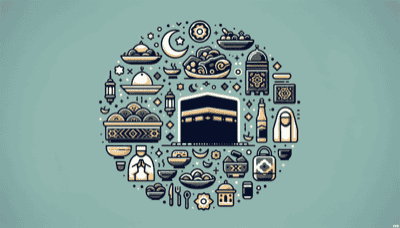We're here to help you keep count of the days to or since a date. Just click the button below and enter your chosen date to get started. Also choose the suggested days or search for a special day above #countingthedays

Eid al-Adha, also known as the Festival of Sacrifice, is one of the two major Islamic holidays celebrated worldwide, including in Gabon, where Islam is practiced by a significant portion of the population.
Eid al-Adha commemorates the willingness of Ibrahim (Abraham) to sacrifice his son as an act of obedience to God's command. However, before he could carry out the act, God provided a ram to sacrifice instead. In remembrance of this event, animals are sacrificed ritually and divided into three parts: one part for the family, one part for friends and relatives, and one part for the poor and needy.
On this day in Gabon:
Religious Observance: Muslims start the day by performing the Eid prayer in congregation at mosques or open spaces.
Animal Sacrifice: Those who can afford it will sacrifice a permissible animal (usually a sheep, goat, cow or camel) following strict guidelines. This practice also reflects acts of charity towards those less fortunate.
Feasting: Families prepare sumptuous meals with a portion of the sacrificed animal's meat. It is a time for communal feasting and enjoying various traditional dishes.
Sharing with Others: The meat from the sacrifice is distributed among family, friends, and particularly to those in need, emphasizing sharing and caring within the community.
Clothing: It is customary for people to wear new or their best clothes to symbolize purity and renewal.
Social Gatherings: People visit each other's homes; there are often large community gatherings.
On Eid al-Adha:
In Gabonese cities with larger Muslim populations such as Libreville and Port-Gentil, these traditions are more visible due to communal gatherings while smaller communities may observe them within their families or local mosques.